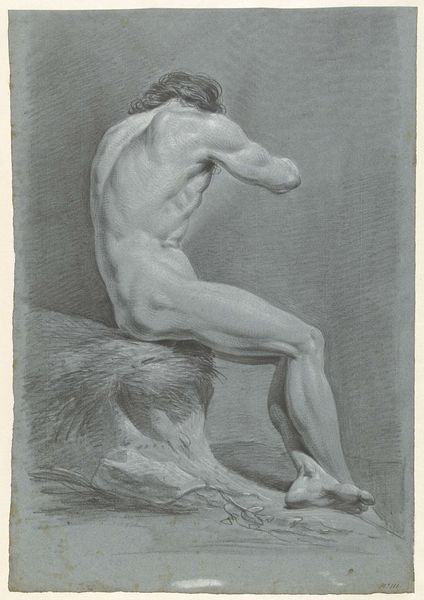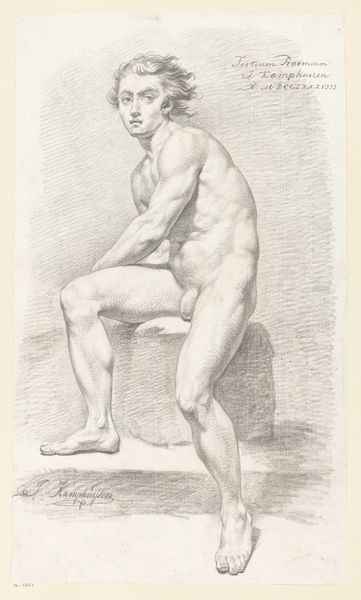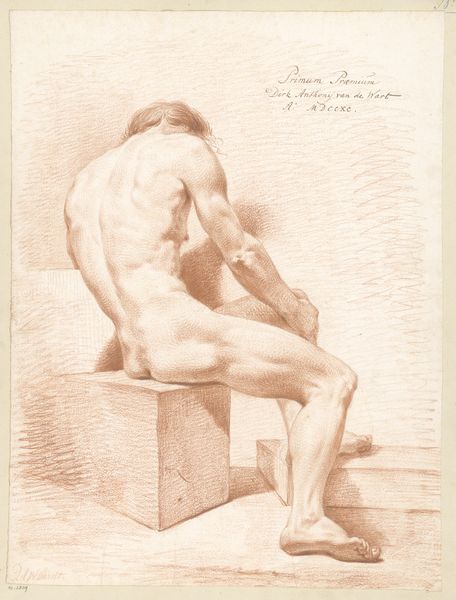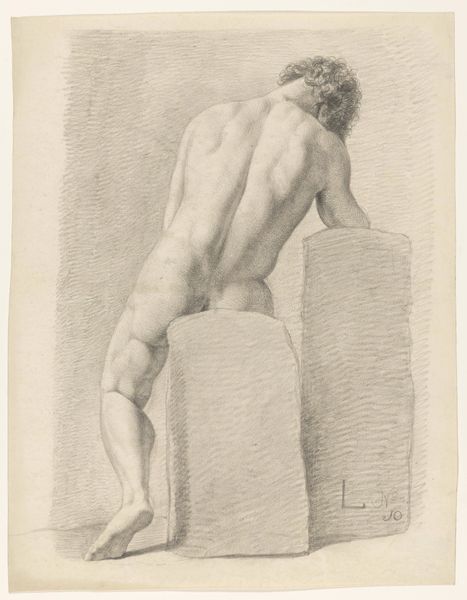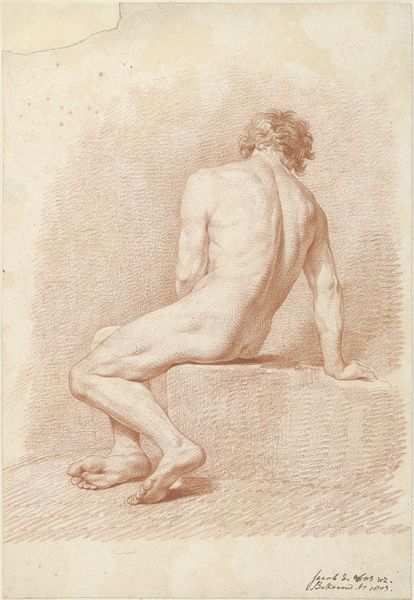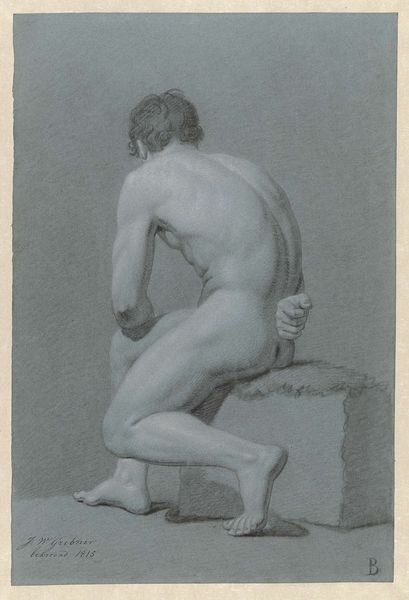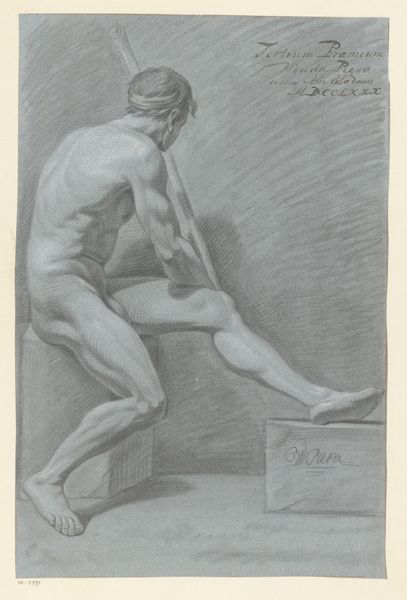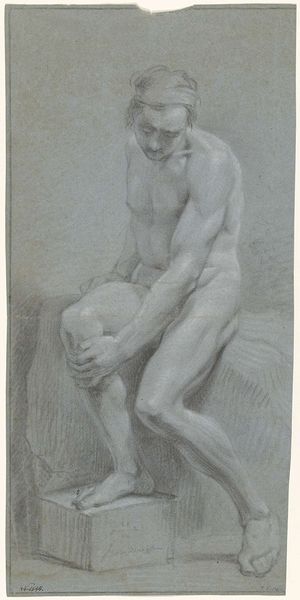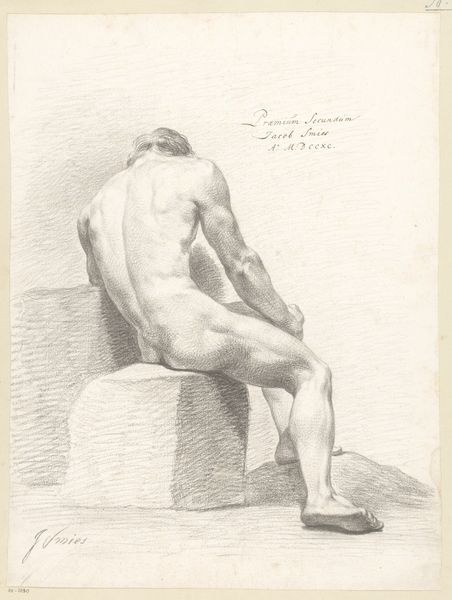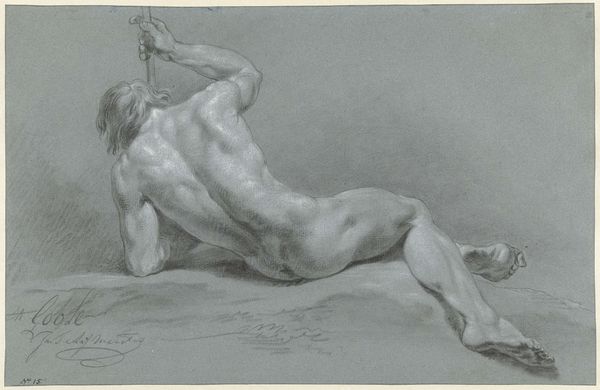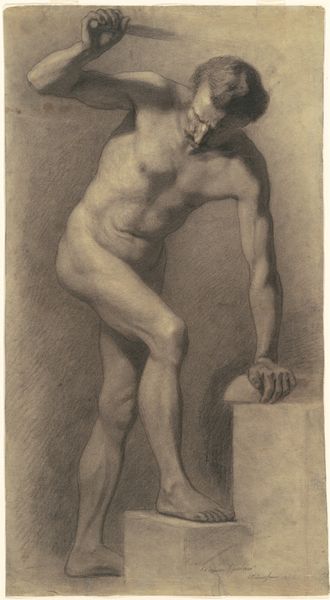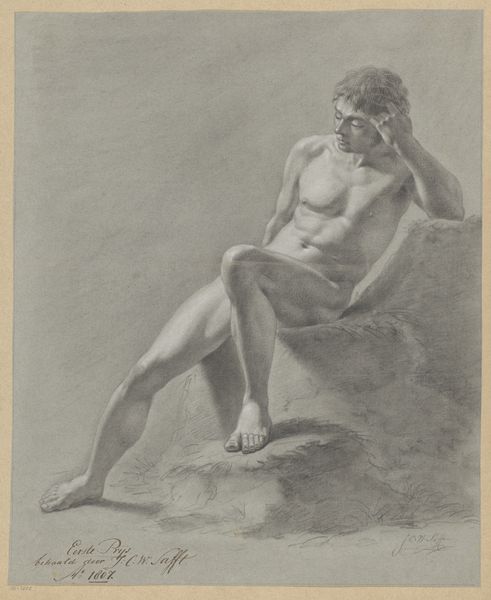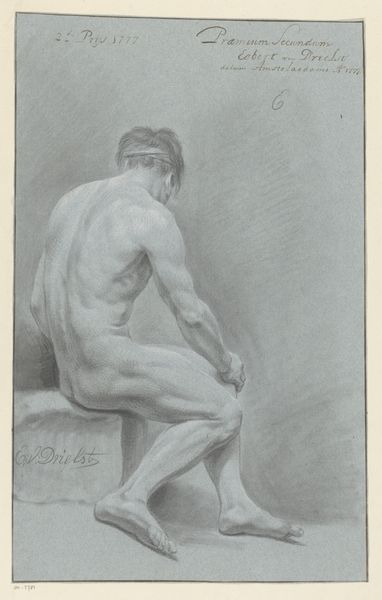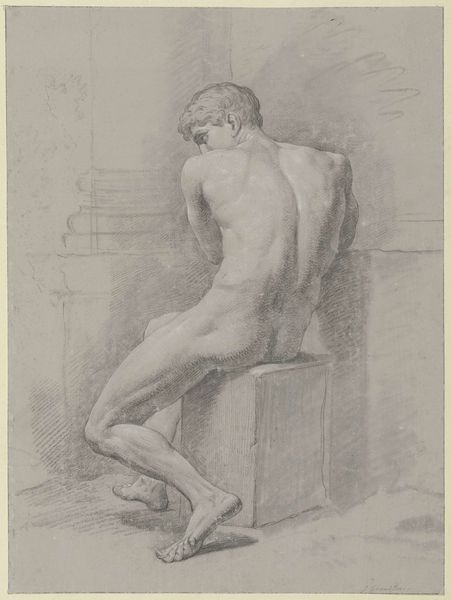
drawing, charcoal
#
drawing
#
baroque
#
charcoal drawing
#
figuration
#
charcoal art
#
charcoal
#
nude
Dimensions: height 279 mm, width 375 mm
Copyright: Rijks Museum: Open Domain
Aert Schouman rendered this chalk drawing of a male nude, seen from the back, sometime in the 18th century. The figure's pose, bent forward with hands placed on a plinth, suggests a moment of contemplation or effort. The nude form carries echoes of classical antiquity, reminiscent of ancient Greek sculptures. The Greeks believed that the human body contained ideal proportions, often associated with gods and heroes. These same ideals resurfaced during the Renaissance, where artists such as Michelangelo also explored the nude form to convey notions of beauty, strength, and heroism. This kind of contrapposto pose can be traced through the centuries, reappearing in various forms in art and culture, each time imbued with new layers of meaning and intention. It represents a powerful force engaging viewers on a subconscious level. In this drawing, Schouman taps into this deep well of artistic and cultural memory. It is a testament to how symbols and artistic conventions evolve and are passed down through history.
Comments
No comments
Be the first to comment and join the conversation on the ultimate creative platform.
